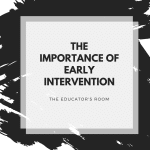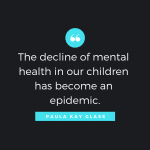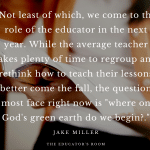A question that I’m asked every morning by colleagues almost instinctively is “how you doing?” and without giving the question much thought, I always respond with “I’m good!” I know this is a superficial response but that question is a loaded one, and as teachers, we know that we’re all struggling right now. It is difficult to articulate how challenging the past few months have been. The first day of school jitters had an entirely new meaning this year, and I think the consensus for teachers is that this year is different. We’re swamped with work while juggling our mental health, which has been suffering since the beginning of the pandemic. For me, my experience has been more difficult because of my identity as an immigrant. Currently, I’m not with my family; in fact, I just hung up the phone with my father, who lives in Jamaica, thousands of miles away from Canada. It ended on a solemn note as we discussed how it wouldn’t be possible for me to come home for the Christmas holidays, due to the risks that come with traveling right now. The Christmas holidays are dear to my heart, as they represent my strong familial connections and traditions. This phone call just represented the distance that exists between myself and many of those who mean the world to me. It worsens the feeling of loneliness and the isolation that we already felt for months while in lockdown.
However, being far away from my parents is just a reality that comes with the immigrant experience…
…As mentioned before, being a teacher is difficult. Being a black teacher has its added complexities. Being a black, immigrant teacher is uniquely tough. In addition to the workload of an educator, and the emotional hardship of being black in a predominantly white space, we also have to tread the nuances of a different country from our own, while constantly feeling like outsiders and being denied access to certain amenities that others may have the privilege to. We may be away from our families, and friends. We might not speak the official language of the nation we’ve moved to. We might just feel out of place, and unsure of how to fit in. We might literally be criminalized for where we’re from, for our accents, our cultural garments, etc. These are some of the realities we face. As an immigrant, the experience of this pandemic has been twofold as I’ve navigated a strange virus and the implication of such in a place that’s not my native home.
[bctt tweet=”Being a black teacher has its added complexities. Being a black, immigrant teacher is uniquely tough” username=””]
As an immigrant, I feel so far from home; I haven’t seen my parents in months and I constantly worry about their welfare, especially since they are so far away and that if something did happen to them, I wouldn’t be able to get to them as fast as I wanted to. They are a core part of my support system and without them, it has been difficult navigating this pandemic. On top of this, I worry about my own health, and being in the classroom every day around many kids a day, doesn’t help. I think about my fellow immigrant educators who may not have access to proper healthcare (which is especially necessary for covid-19 tests and medical assistance due to the virus), to well-funded mental health resources, good housing, etc. We can’t just go home if we start to feel like we need the comfort of our parents (if we have a good relationship with them), our native food, our people, or that place back home that brings us solace. Furthermore, as I observe the election happenings, and the continued violence towards Black people everywhere, the anxiety that plagues me about the safety of black people, myself included, have become more intense.
Earlier in the year, I wrote a piece about the importance of checking up on your teacher friends but for this piece, I’m asking that you check up on those who have identities that intersect, which compounds the difficulty of their experiences during the pandemic. So, check up on your teacher friends of color, your immigrant teachers, your teachers who are black women who are immigrants, etc. Call them, ask to Zoom and watch a movie with them, plan online linkups with them, play online games with them, just sit in silence with them (online or in-person if you can do it safely). These are basic human niceties but treat us with more patience & compassion, educate yourself on the hardships that we may face, and work to deconstruct the institutions that continue to treat immigrants unfairly. We need to know that you see us and are willing to hear about what we’re going through.
Do you know any teachers who are immigrants, furthermore, immigrants of color? If so, what are you doing to support them?







There are so many added layers to the difficulty of being a teacher and I am so glad these conversations are taking place. Helping people understand teacher problems during a pandemic on top of being a black immigrant teacher is unimaginable, so it is up to everyone to try their best to empathize.